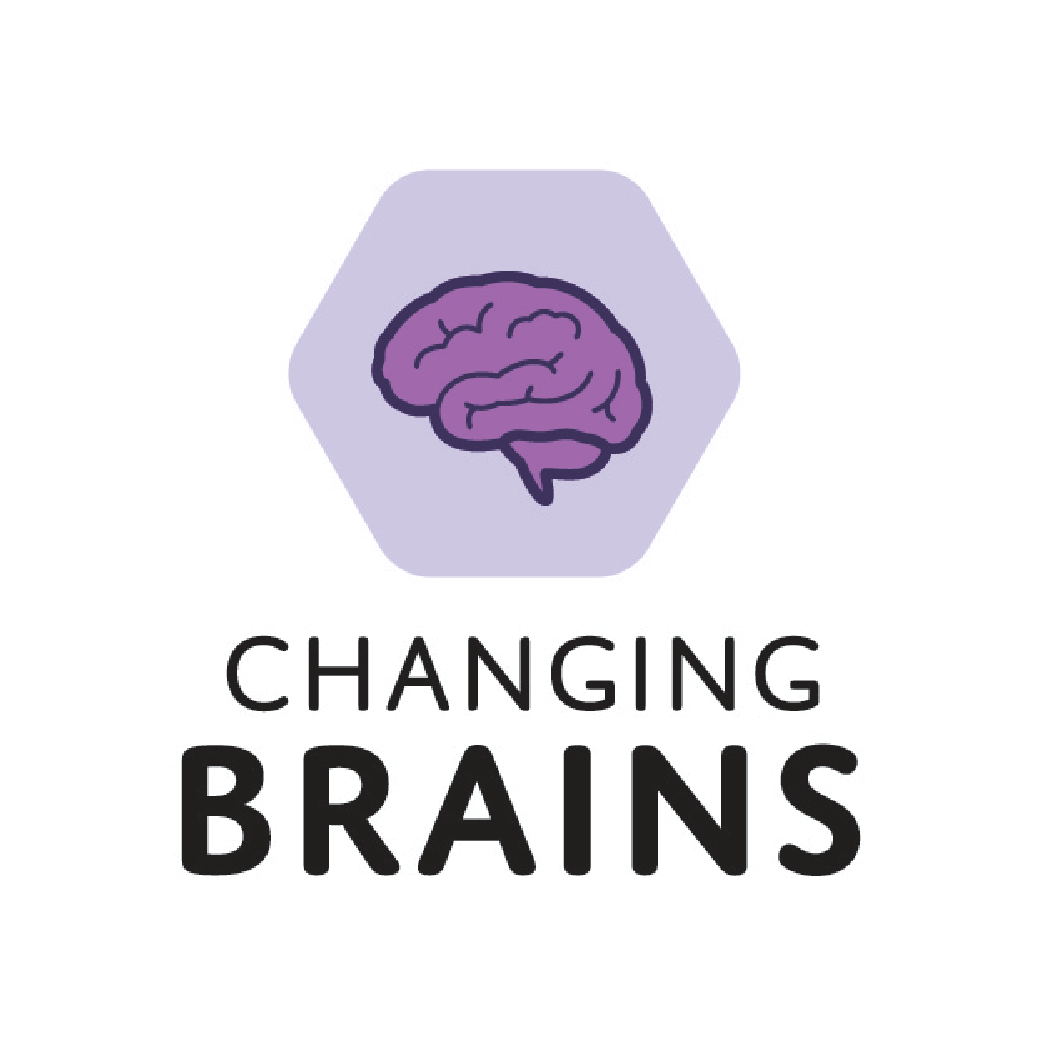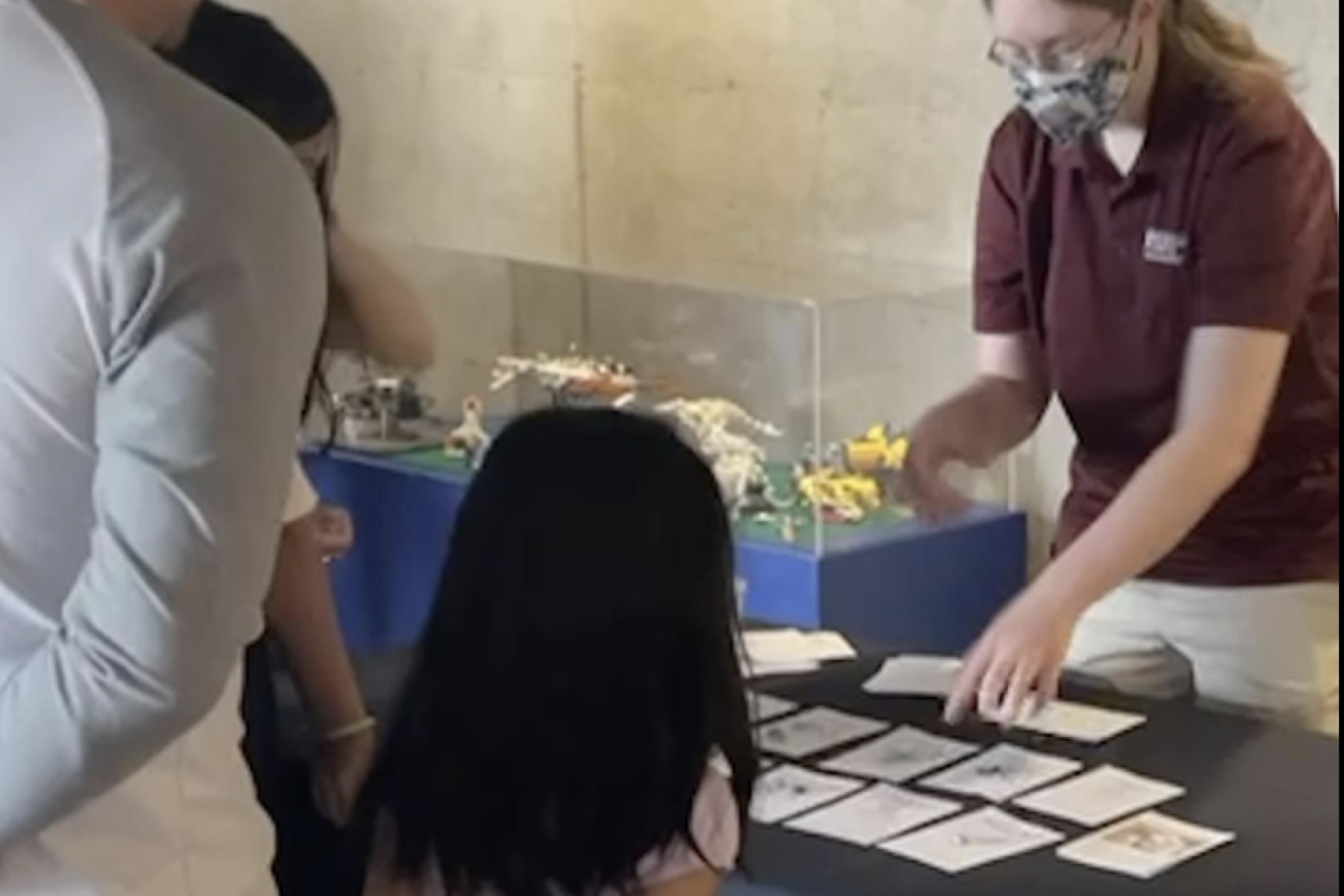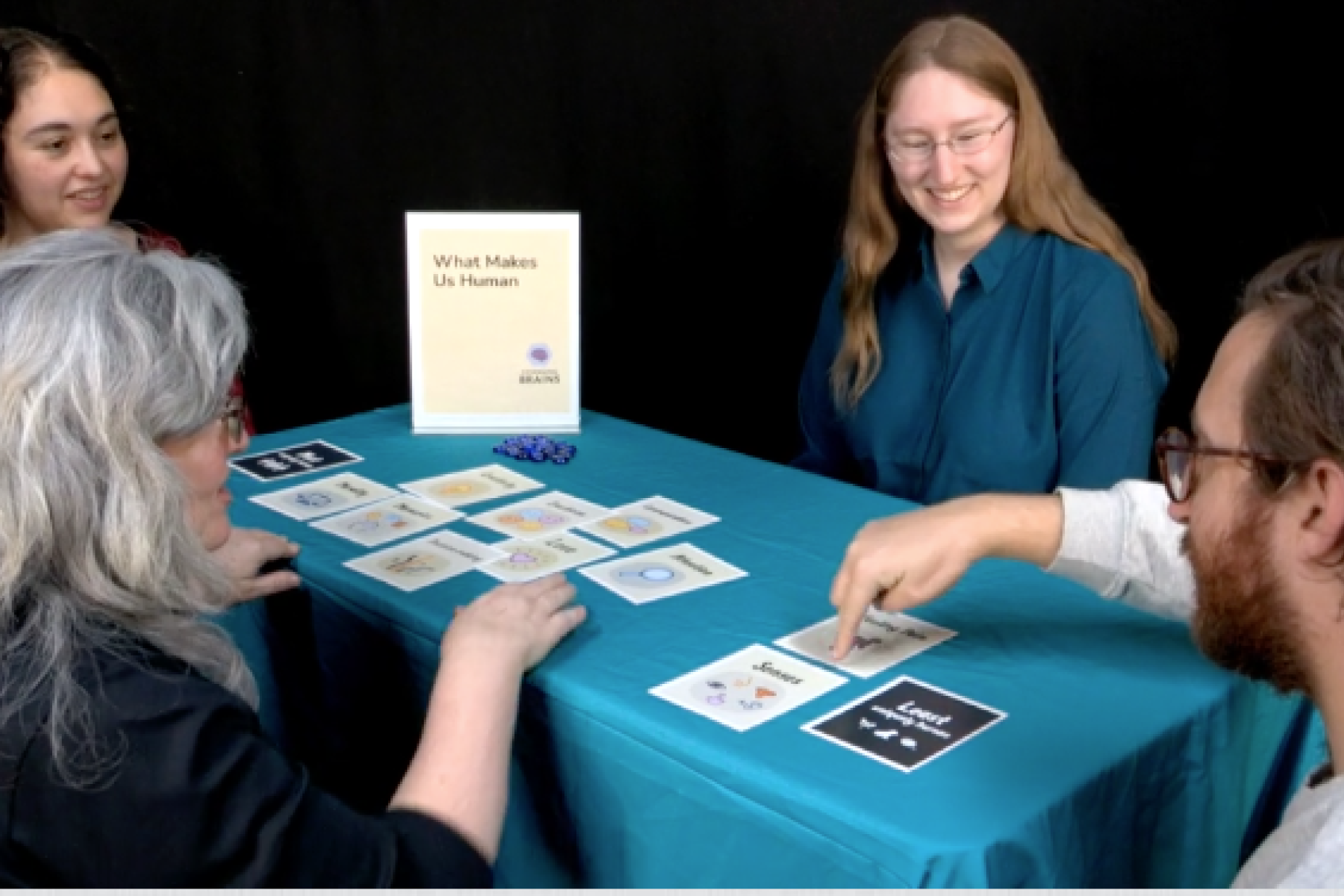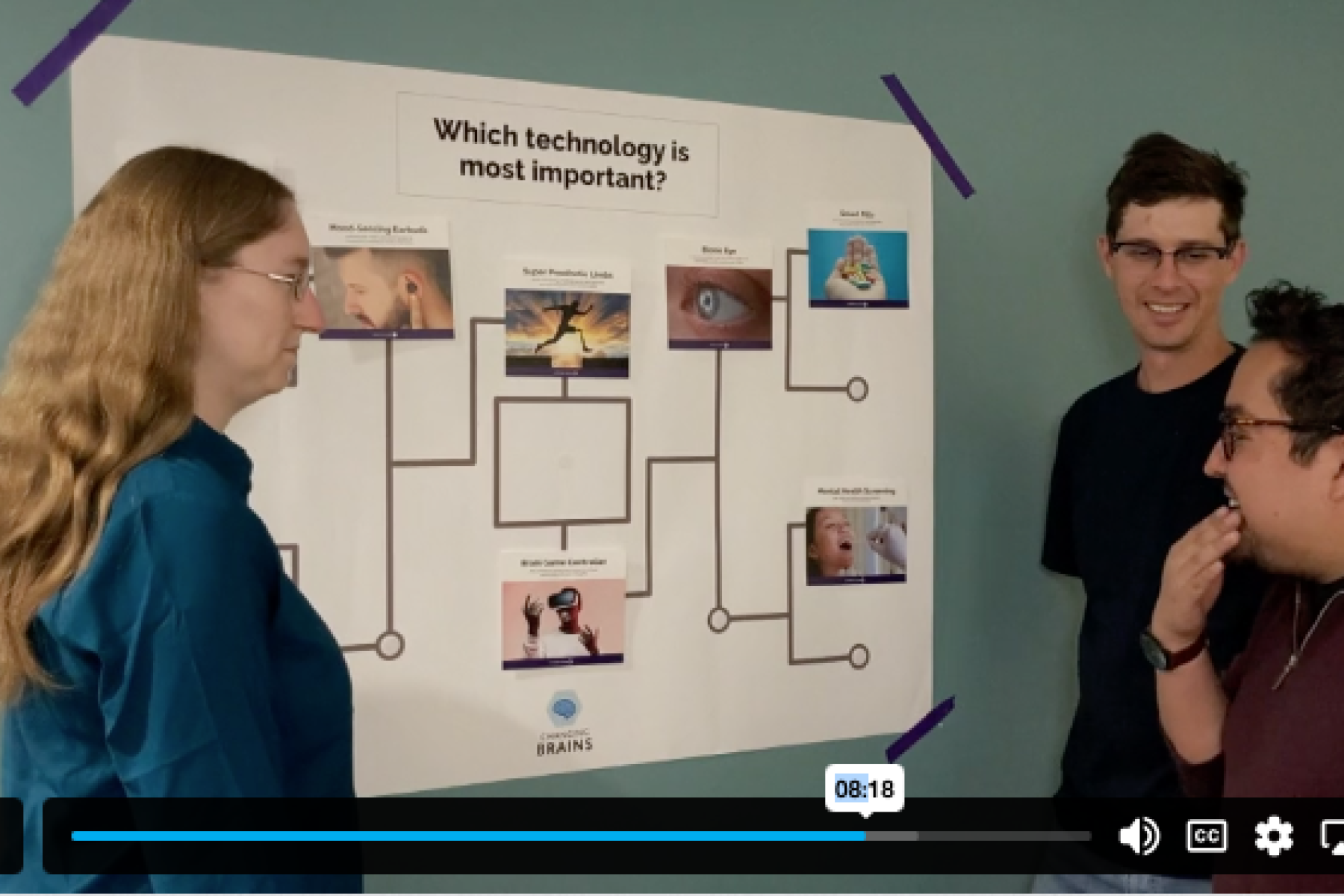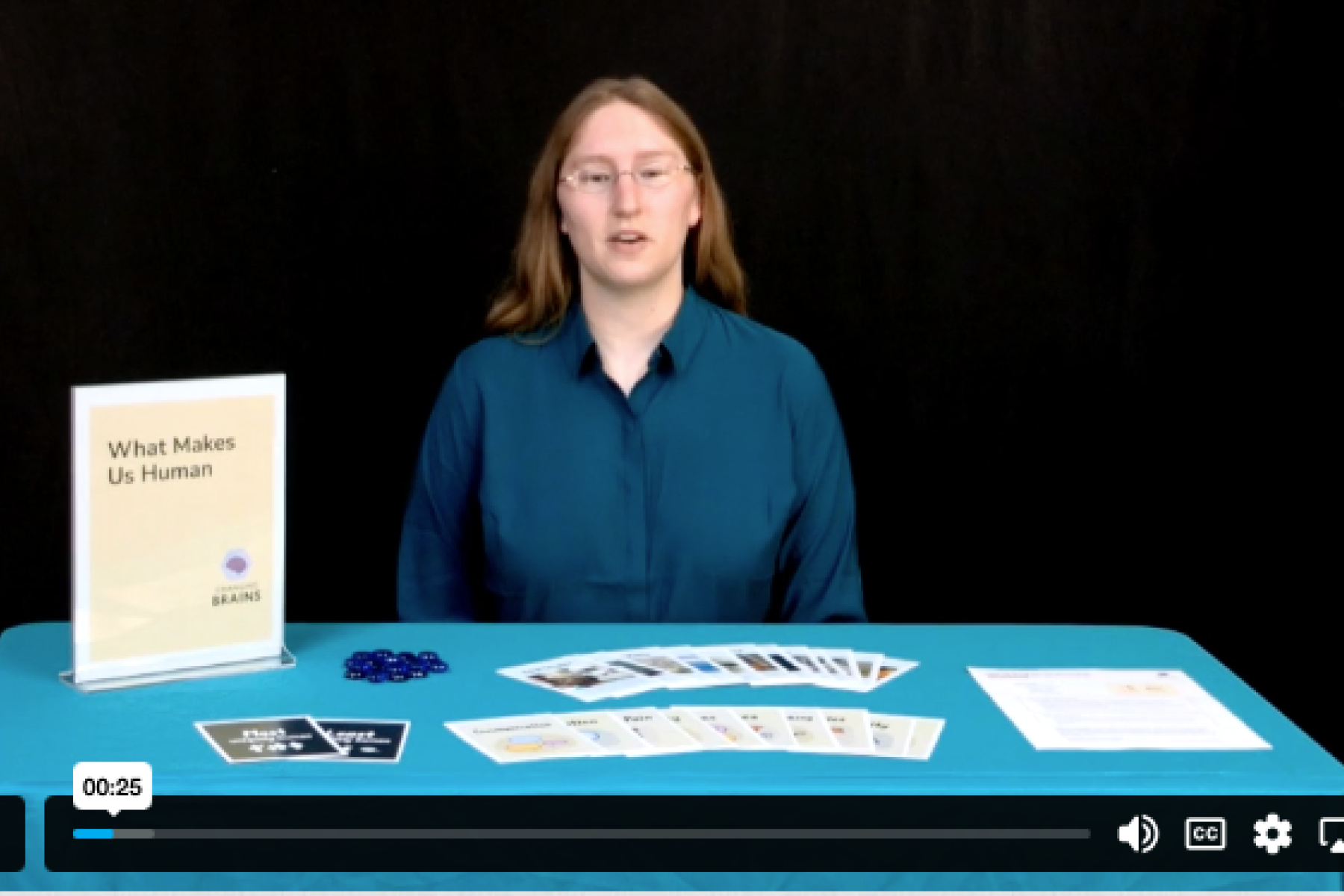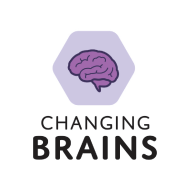DESCRIPTION
The Changing Brains project explored opportunities to engage public audiences around neuroethics though a partnership between the National Informal STEM Education Network (NISE Network), the Dana Foundation, and the Civic Science Fellows Program. The overarching goal of the project was to develop the potential for stakeholder input into neuroscience research and policy making with public audiences.
This report covers the formative evaluation for Phase 2 of the project, which involved the development of experiences for public audiences. Experiences were grouped into broad engagement activities (three short hands-on activities designed for public audiences in a variety of settings) and deep engagement programs (one evening program designed for adult audiences to engage deeply in the topic with scientists). Through an additional partnership, the project also supported the development of arts engagement experiences, not covered in this evaluation. The formative evaluation for the Changing Brains project addressed how the broad engagement and deep engagement experiences could be improved to meet the project goals (above) along with activity or program specific goals around learning, engagement, or usability, as needed.
Public engagement experiences included in the report:
- Brain Enhancement Conversation Lab
- What Makes Us Human?” activity
- Neuro Futures card game
- Neuro Futures Championship game
Suggested citation:
Anderson, A. (2023). Changing Brains: Formative evaluation report. Boston, MA: Museum of Science for the NISE Network.
DESCRIPTION
The Changing Brains project explored opportunities to engage public audiences around neuroethics though a partnership between the National Informal STEM Education Network (NISE Network), the Dana Foundation, and the Civic Science Fellows Program. The overarching goal of the project was to develop the potential for stakeholder input into neuroscience research and policy making with public audiences.
This report covers the formative evaluation for Phase 2 of the project, which involved the development of experiences for public audiences. Experiences were grouped into broad engagement activities (three short hands-on activities designed for public audiences in a variety of settings) and deep engagement programs (one evening program designed for adult audiences to engage deeply in the topic with scientists). Through an additional partnership, the project also supported the development of arts engagement experiences, not covered in this evaluation. The formative evaluation for the Changing Brains project addressed how the broad engagement and deep engagement experiences could be improved to meet the project goals (above) along with activity or program specific goals around learning, engagement, or usability, as needed.
Public engagement experiences included in the report:
- Brain Enhancement Conversation Lab
- What Makes Us Human?” activity
- Neuro Futures card game
- Neuro Futures Championship game
Suggested citation:
Anderson, A. (2023). Changing Brains: Formative evaluation report. Boston, MA: Museum of Science for the NISE Network.
OBJECTIVES
LEARNING GOALS
- Understand how participants interacted with the activities, in order to inform changes or improvements
- Learn to what extent participants are meeting learning objectives
- Uncover interesting questions for future investigation
Credits
This work is supported by the Dana Foundation and The Kavli Foundation. Any opinions, findings, and conclusions or recommendations expressed in this program are those of the authors and do not necessarily reflect the views of the supporting foundations.
Creative Commons Attribution Non-Commercial Share Alike 3.0 United States (CC BY-NC-SA 3.0 US).
View more details

NISE Network products are developed through an iterative collaborative process that includes scientific review, peer review, and visitor evaluation in accordance with an inclusive audiences approach. Products are designed to be easily edited and adapted for different audiences under a Creative Commons Attribution Non-Commercial Share Alike license. To learn more, visit our Development Process page.

